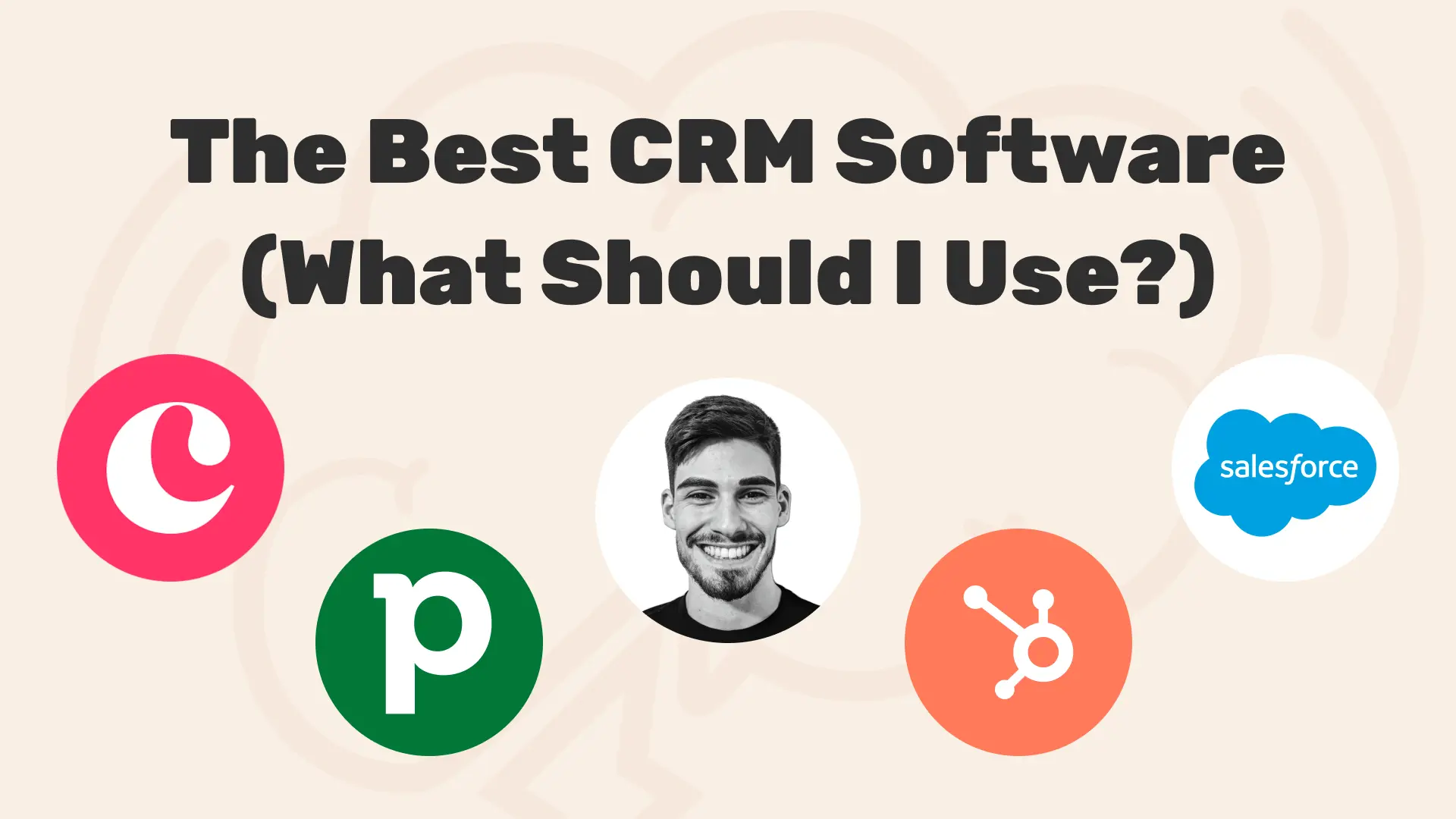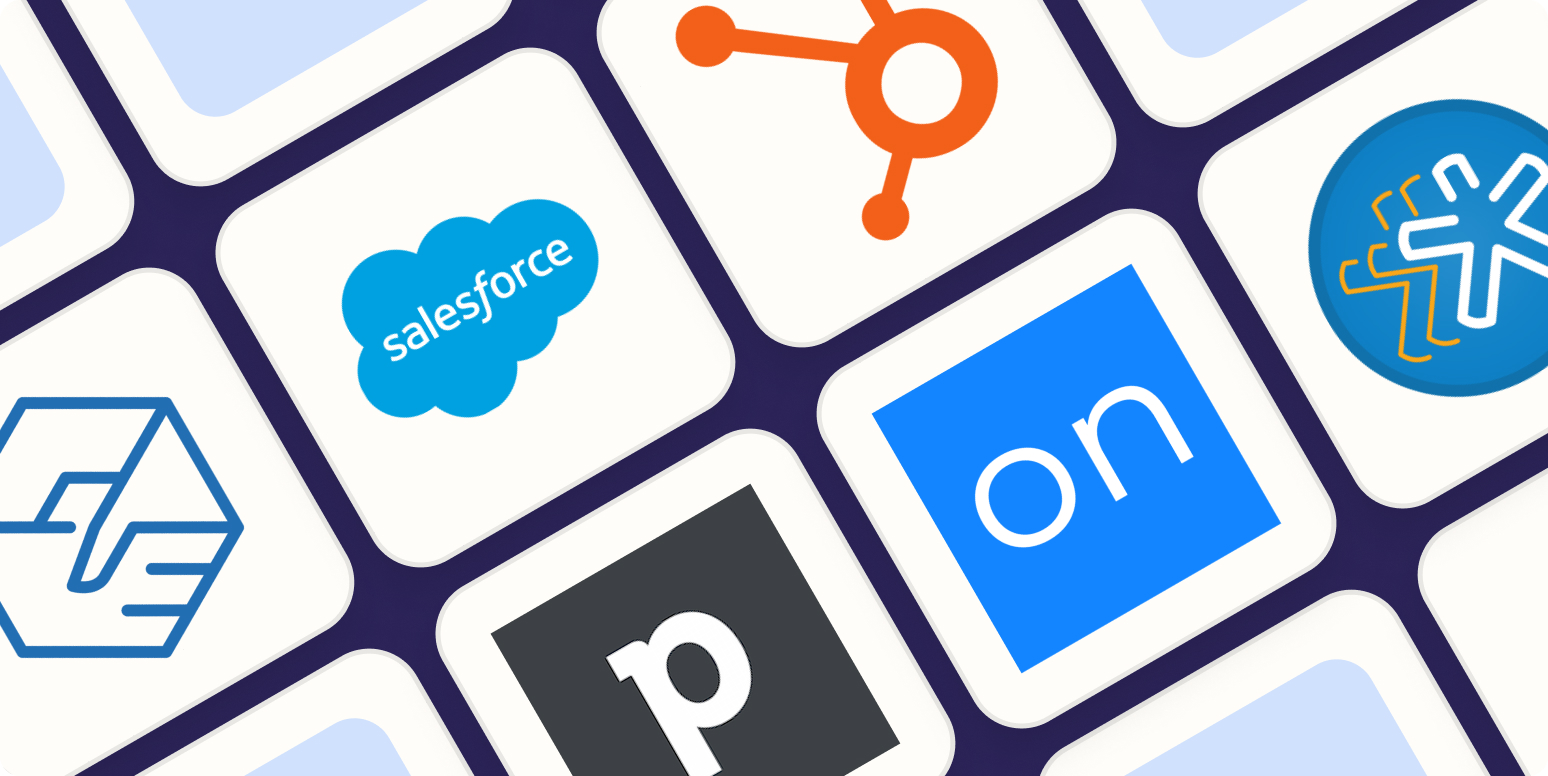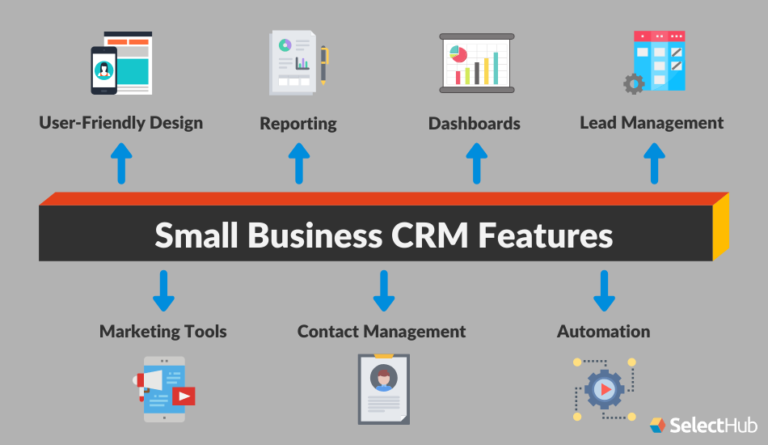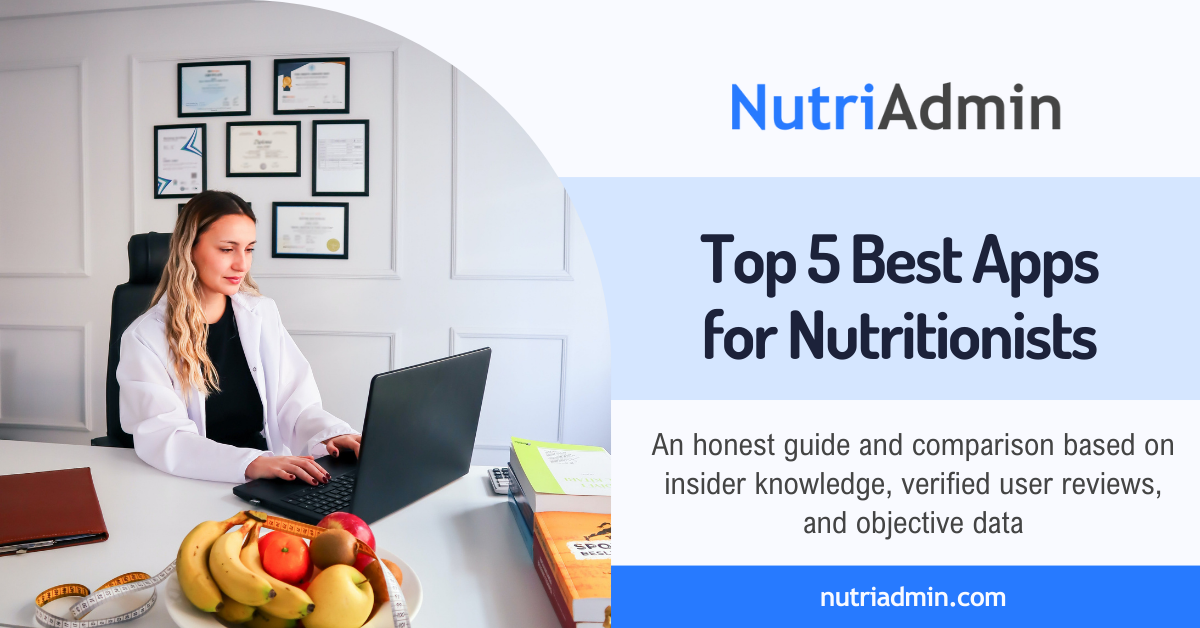Small Business CRM Basics in 2025: Your Guide to Customer Relationship Mastery
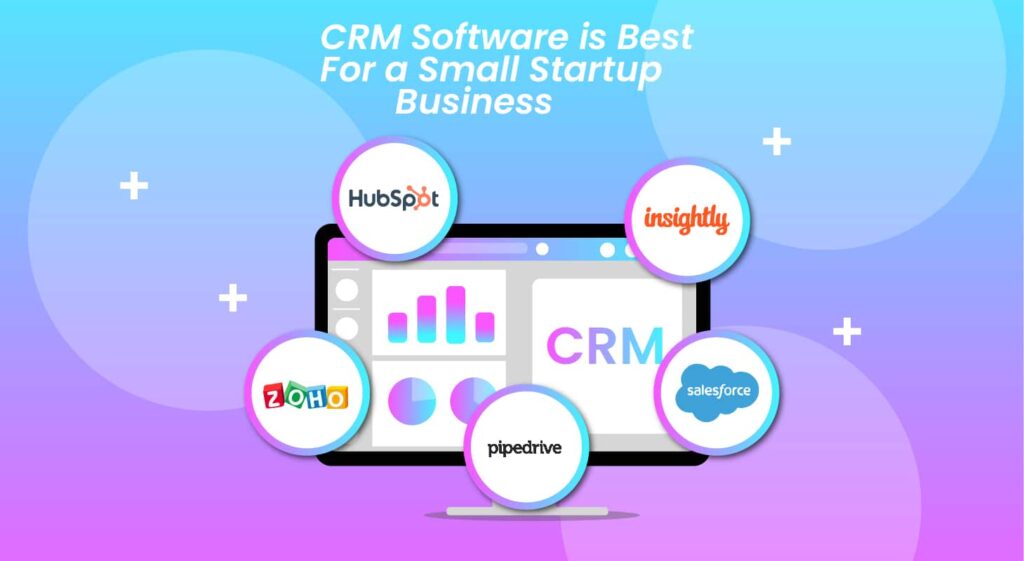
Small Business CRM Basics in 2025: Your Guide to Customer Relationship Mastery
Running a small business is a rollercoaster, isn’t it? One minute you’re celebrating a new client, the next you’re juggling invoices, marketing campaigns, and customer support tickets. In the midst of all this, it’s easy for valuable customer relationships to slip through the cracks. That’s where a Customer Relationship Management (CRM) system comes in. Think of it as your central nervous system for all things customer-related. In 2025, the landscape of CRM for small businesses is more dynamic and crucial than ever. This comprehensive guide breaks down the CRM basics you need to know to thrive.
What is a CRM? The Core Concept
At its heart, a CRM is a technology solution that helps businesses manage and analyze customer interactions and data throughout the customer lifecycle. It’s not just about storing contact information; it’s about understanding your customers better, anticipating their needs, and providing exceptional service. CRM empowers you to build stronger, more profitable relationships.
Imagine a scenario: a potential customer visits your website, downloads a brochure, and then calls your sales team. Without a CRM, this interaction might be fragmented. Sales reps might not know the customer’s previous browsing history or what they’re interested in. With a CRM, all this information is readily available, allowing for a more personalized and effective sales approach.
In essence, a CRM system acts as a central hub for all customer-related information, including:
- Contact details: Names, addresses, phone numbers, email addresses, etc.
- Interaction history: Emails, calls, meeting notes, support tickets, and social media interactions.
- Sales data: Opportunities, quotes, orders, and invoices.
- Marketing data: Campaign responses, website activity, and lead scoring.
- Customer segmentation: Grouping customers based on demographics, behavior, or purchase history.
By consolidating all this information in one place, a CRM system provides a 360-degree view of each customer, enabling businesses to make data-driven decisions and deliver outstanding customer experiences.
Why Does Your Small Business Need a CRM in 2025?
The benefits of using a CRM for small businesses in 2025 are numerous and compelling. It’s no longer a luxury; it’s a necessity for staying competitive and growing your business.
Improved Customer Relationships
A CRM helps you nurture customer relationships by providing a complete view of each customer’s history and preferences. This allows you to personalize your interactions, provide proactive support, and build stronger loyalty.
Consider this: you’re a small online retailer. A customer who has previously purchased from you contacts you with a question about a product. With a CRM, you can instantly access their purchase history, understand their past preferences, and provide a tailored response. This level of personalization can significantly enhance customer satisfaction and encourage repeat business.
Increased Sales and Revenue
CRM systems help you streamline your sales process, track leads, and manage opportunities more effectively. This can lead to increased sales conversions and higher revenue. Features like sales pipeline management, lead scoring, and automated follow-ups can significantly boost your sales team’s productivity.
For example, a CRM can automatically score leads based on their engagement with your website or marketing materials. This allows your sales team to prioritize the most promising leads, saving time and resources and increasing the likelihood of closing deals.
Enhanced Marketing Effectiveness
CRM systems provide valuable insights into customer behavior, allowing you to create more targeted and effective marketing campaigns. By segmenting your audience and tailoring your messaging, you can increase engagement and drive conversions. Integration with marketing automation tools further enhances your marketing efforts.
Imagine you’re a local bakery. Using CRM data, you can identify customers who frequently purchase birthday cakes. You can then send them targeted email promotions a few weeks before their birthdays, increasing the chances of them choosing your bakery for their celebration.
Improved Customer Service
A CRM system allows you to provide faster and more efficient customer service. By having access to customer history and support tickets, your customer service representatives can quickly resolve issues and provide personalized support. This leads to increased customer satisfaction and loyalty.
Let’s say you run a small IT support company. A customer calls with a technical issue. With a CRM, your support team can quickly access their past support tickets, understand the history of the problem, and offer a solution more efficiently. This saves time, reduces frustration, and builds trust with your clients.
Better Data Analysis and Reporting
CRM systems provide valuable data and insights into your business performance. You can track key metrics, such as sales conversions, customer satisfaction, and marketing campaign effectiveness. This data allows you to make informed decisions and optimize your business processes.
For instance, a CRM can generate reports on your sales team’s performance, identifying top performers and areas for improvement. This data can be used to provide targeted coaching and training, ultimately leading to better sales results.
Key Features to Look for in a Small Business CRM in 2025
Not all CRM systems are created equal. When choosing a CRM for your small business in 2025, consider these essential features:
Contact Management
This is the foundation of any CRM. It allows you to store and manage all your customer contact information, including names, addresses, phone numbers, email addresses, and social media profiles. Look for features like automatic data enrichment, which can populate missing information and keep your data accurate.
Sales Automation
Sales automation features streamline your sales process by automating repetitive tasks, such as lead assignment, email follow-ups, and appointment scheduling. This frees up your sales team to focus on more strategic activities, such as building relationships and closing deals.
Lead Management
Lead management features help you track and nurture leads throughout the sales pipeline. This includes lead scoring, lead assignment, and the ability to track lead interactions. A good lead management system helps you identify and prioritize the most promising leads, increasing your chances of conversion.
Marketing Automation
Marketing automation features allow you to automate your marketing campaigns, such as email marketing, social media posting, and lead nurturing. This can save you time and resources while improving your marketing effectiveness. Look for features like email templates, segmentation, and campaign tracking.
Customer Service and Support
Customer service features allow you to track and manage customer support tickets, provide personalized support, and resolve issues quickly. This includes features like ticket management, knowledge base integration, and live chat. A good customer service system helps you improve customer satisfaction and build loyalty.
Reporting and Analytics
Reporting and analytics features allow you to track key metrics, such as sales conversions, customer satisfaction, and marketing campaign effectiveness. This data allows you to make informed decisions and optimize your business processes. Look for features like customizable dashboards and the ability to generate detailed reports.
Integration with Other Tools
The ability to integrate with other tools is crucial. Your CRM should integrate seamlessly with other software you use, such as your email provider, accounting software, and social media platforms. This integration ensures that all your data is synchronized and accessible in one place.
Mobile Access
In today’s fast-paced world, mobile access is essential. Your CRM should have a mobile app or be accessible on mobile devices, allowing your team to access customer data and manage their tasks on the go.
Customization Options
Your CRM should be customizable to fit your specific business needs. Look for a system that allows you to customize fields, workflows, and reports to align with your business processes.
Choosing the Right CRM for Your Small Business in 2025
Selecting the right CRM system is a critical decision for your small business. Here’s a step-by-step guide to help you choose the best fit:
1. Assess Your Needs
Before you start evaluating CRM systems, take the time to assess your business needs. What are your goals for implementing a CRM? What are your pain points? What features are essential for your business? Consider the size of your team, the complexity of your sales process, and the level of customer support you need to provide.
For instance, a small retail business might prioritize features like contact management, sales tracking, and customer service. A professional services firm might focus on features like project management, time tracking, and invoicing.
2. Define Your Budget
CRM systems come in a variety of price points. Determine how much you’re willing to spend on a CRM system. Consider the cost of software licenses, implementation, training, and ongoing maintenance. Remember that the cheapest option is not always the best. Investing in a robust CRM system can pay off in the long run by improving efficiency, increasing sales, and enhancing customer relationships.
3. Research CRM Providers
Once you have a clear understanding of your needs and budget, research different CRM providers. Read reviews, compare features, and explore pricing options. Consider both cloud-based (SaaS) and on-premise solutions. Cloud-based solutions are generally more affordable and easier to implement, while on-premise solutions offer more customization and control.
4. Evaluate Features
Carefully evaluate the features offered by each CRM provider. Make sure the system includes the essential features you need, such as contact management, sales automation, lead management, marketing automation, customer service and support, reporting and analytics, and integration with other tools. Consider the user-friendliness of the interface and the availability of mobile access.
5. Consider Scalability
Choose a CRM system that can grow with your business. As your business expands, you’ll need a CRM system that can handle more users, more data, and more complex workflows. Make sure the system offers the scalability you need to accommodate future growth.
6. Test Drive the System
Most CRM providers offer free trials or demos. Take advantage of these opportunities to test drive the system and see how it works in practice. This will give you a better understanding of the system’s features, user interface, and overall usability. Involve your team in the testing process to get their feedback.
7. Consider Implementation and Training
Implementing a CRM system can be a complex process. Choose a provider that offers good implementation support and training. Make sure your team is properly trained on how to use the system effectively. Consider the availability of online resources, such as tutorials and documentation.
8. Plan for Data Migration
If you’re migrating from an existing system, plan for data migration. This involves transferring your existing customer data to the new CRM system. Make sure the CRM provider offers data migration services or tools to help you with this process. Ensure that your data is accurate and complete before migrating it to the new system.
9. Prioritize Security
Data security is paramount. Choose a CRM provider that offers robust security features, such as data encryption, access controls, and regular security audits. Make sure the provider complies with relevant data privacy regulations, such as GDPR and CCPA.
10. Make a Decision and Implement
After careful consideration, make a decision and implement your chosen CRM system. Work closely with the provider to ensure a smooth implementation process. Train your team on how to use the system effectively, and monitor your progress. Be prepared to make adjustments as needed.
Top CRM Systems for Small Businesses in 2025
The CRM landscape is constantly evolving, but some systems consistently stand out for their features, affordability, and ease of use for small businesses. Here are a few of the leading CRM systems to consider in 2025 (Note: Specific features and pricing may vary, so always check the provider’s website for the most up-to-date information):
1. HubSpot CRM
HubSpot CRM is a popular choice for small businesses due to its user-friendly interface, comprehensive features, and free plan. It offers robust contact management, sales automation, and marketing automation capabilities. HubSpot CRM integrates seamlessly with other HubSpot tools, such as marketing automation and content management, making it a great option for businesses that want an all-in-one solution. It’s known for its ease of use and strong support resources.
2. Zoho CRM
Zoho CRM is a powerful and affordable CRM system that offers a wide range of features, including sales automation, lead management, and customer service. It’s highly customizable and integrates with other Zoho apps, such as email marketing and project management. Zoho CRM is a good option for businesses that need a flexible and scalable solution. It offers various pricing tiers to accommodate different business sizes and needs.
3. Salesforce Sales Cloud Essentials
Salesforce is a well-established CRM provider, and Sales Cloud Essentials is designed specifically for small businesses. It offers a streamlined set of features, including contact management, sales tracking, and reporting. Salesforce is known for its robust features and integration capabilities, and Sales Cloud Essentials provides a more affordable entry point into the Salesforce ecosystem. However, it may have a steeper learning curve compared to other options.
4. Pipedrive
Pipedrive is a sales-focused CRM designed to help sales teams manage their pipelines and close deals. It’s known for its intuitive interface and visual sales pipeline view. Pipedrive offers a range of features, including sales automation, lead management, and reporting. It’s a good option for businesses that prioritize sales productivity and pipeline management. It’s very user-friendly and focused on the sales process.
5. Freshsales
Freshsales is a CRM system that emphasizes ease of use and affordability. It offers a range of features, including sales automation, lead management, and customer service. Freshsales integrates with other Freshworks products, such as Freshdesk for customer support. Freshsales is a good option for businesses that are looking for a user-friendly and cost-effective CRM solution. It’s known for its easy setup and intuitive interface.
Tips for CRM Success in Your Small Business
Implementing a CRM system is just the first step. To achieve CRM success, you need to adopt best practices and cultivate a culture of customer focus. Here are some tips to help you get the most out of your CRM:
1. Define Clear Goals and Objectives
Before you implement your CRM, define clear goals and objectives. What do you want to achieve with your CRM? Do you want to increase sales, improve customer satisfaction, or streamline your sales process? Having clear goals will help you track your progress and measure the success of your CRM implementation.
2. Train Your Team
Proper training is essential for CRM success. Make sure your team is properly trained on how to use the system effectively. Provide ongoing training and support to help them stay up-to-date on the latest features and best practices. Encourage your team to ask questions and provide feedback.
3. Clean and Maintain Your Data
The accuracy of your data is critical to CRM success. Regularly clean and maintain your data to ensure that it is up-to-date and accurate. Remove duplicate entries, update contact information, and correct any errors. A clean database will ensure that your CRM provides accurate insights and that your sales and marketing efforts are effective.
4. Customize Your CRM to Fit Your Needs
Don’t be afraid to customize your CRM to fit your specific business needs. Customize fields, workflows, and reports to align with your business processes. This will help you get the most out of your CRM and improve your team’s productivity.
5. Integrate Your CRM with Other Tools
Integrate your CRM with other tools, such as your email provider, accounting software, and social media platforms. This will ensure that all your data is synchronized and accessible in one place. Integration will also streamline your workflows and improve your team’s efficiency.
6. Monitor and Analyze Your Results
Regularly monitor and analyze your CRM results. Track key metrics, such as sales conversions, customer satisfaction, and marketing campaign effectiveness. Use this data to identify areas for improvement and optimize your business processes. Make adjustments to your CRM strategy as needed.
7. Foster a Customer-Centric Culture
Cultivate a customer-centric culture within your organization. Encourage your team to put the customer first and to focus on building strong relationships. Use your CRM to provide personalized service and to exceed customer expectations. A customer-centric culture will lead to increased customer loyalty and business growth.
8. Seek Feedback and Adapt
Regularly seek feedback from your team and customers. What’s working well? What can be improved? Use this feedback to adapt your CRM strategy and to improve your overall business processes. Be willing to make changes as needed to stay ahead of the curve.
The Future of CRM for Small Businesses
The CRM landscape is constantly evolving, and the future holds exciting possibilities for small businesses. Here are some trends to watch out for in 2025 and beyond:
Artificial Intelligence (AI) and Machine Learning (ML)
AI and ML are already transforming the CRM landscape. In the future, AI will play an even greater role in automating tasks, providing insights, and personalizing customer interactions. CRM systems will use AI to predict customer behavior, identify sales opportunities, and provide proactive support. Expect to see more AI-powered chatbots, virtual assistants, and predictive analytics tools.
Hyper-Personalization
Customers expect personalized experiences, and CRM systems will play a key role in delivering them. CRM systems will use data to personalize every interaction, from email marketing to customer service. Hyper-personalization will involve tailoring content, offers, and experiences to individual customer preferences and needs. This will require CRM systems to integrate with a wider range of data sources and to use AI to analyze customer data.
Mobile-First Approach
Mobile access will continue to be essential. CRM systems will be designed with a mobile-first approach, ensuring that they are accessible and user-friendly on mobile devices. Mobile CRM apps will provide sales teams with the information and tools they need to manage their tasks on the go. Expect to see more features designed specifically for mobile use, such as voice commands and location-based services.
Data Privacy and Security
Data privacy and security will remain top priorities. CRM providers will need to comply with evolving data privacy regulations, such as GDPR and CCPA. CRM systems will need to offer robust security features, such as data encryption, access controls, and regular security audits. Customers will increasingly demand transparency and control over their data.
Integration with the Internet of Things (IoT)
The Internet of Things (IoT) will provide new opportunities for CRM. CRM systems will integrate with IoT devices, such as smart home devices and connected cars, to gather data about customer behavior and preferences. This data will be used to personalize customer experiences and to provide proactive support. For example, a CRM system might receive data from a customer’s smart home device to understand their usage patterns and to offer tailored product recommendations.
Conclusion: Embracing CRM for Small Business Success in 2025
In 2025, a robust CRM system is no longer optional for small businesses; it’s a strategic imperative. By understanding the basics, selecting the right system, and adopting best practices, you can harness the power of CRM to build stronger customer relationships, increase sales, and achieve sustainable growth. The future of CRM is exciting, with AI, hyper-personalization, and mobile access leading the way. Embrace the changes, invest in the right tools, and empower your team to create exceptional customer experiences. The rewards will be well worth the effort.
Don’t wait. Start your CRM journey today and position your small business for success in 2025 and beyond!

